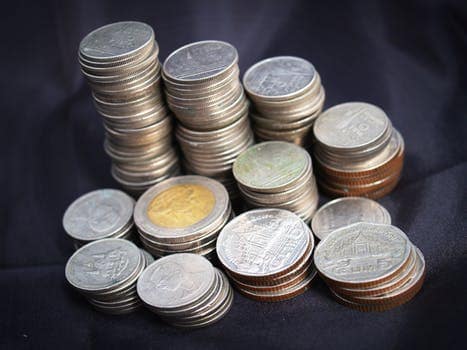f you’re like most people, you have lots of demands on your money. You may have student loans to pay, a down payment to save for, and high interest debt you’re trying to pay off. Prioritizing all of your different financial goals can be difficult, but one of the very first goals to achieve is saving at least some money for an emergency fund.
Around 60% of Americans have less than $500 available for an emergency, despite the fact emergencies happen all the time. Nearly as many Americans — 45% — had incurred a major unexpected expense over the prior year, according to a Bankrate survey.
While your ultimate goal should be to have at least three to six months of living expenses in an emergency fund, you don’t have to start with an aspiration that’s this hard to achieve if you’re in debt or have other money troubles. You should, however, make it a point to save at least $1,000 as one of your first financial accomplishments — even prioritizing emergency savings over aggressive debt repayment.
Why fund an emergency fund as a top priority
If you’re in debt, it’s tempting to want to allocate all of your extra cash to paying it off as fast as possible. Setting aside money for an emergency fund can seem like a foolish waste if you’re paying high interest costs on money you owe. However, despite the fact it may seem like bad math, you should begin saving cash for an emergency even while you are still in the red and have credit cards or other debts to pay.
One of the biggest reasons to save for an emergency is that emergencies will happen. It’s inevitable that cars or household appliances will break down, children will get sick, or other unavoidable expenses will crop up. If you don’t have an emergency fund when these expenditures arise, you’ll have no choice but to go further into debt to handle the unexpected expense. This continues the cycle of debt that you’re in and can be demoralizing if you’re trying to repay what you owe. Seeing your progress on debt repayments eroded by having to make new charges on your credit cards can kill your momentum and make it that much harder to be aggressive about early debt payoff.
Saving for an emergency also ensures you will actually have cash available when you really need it. If you’re in debt already, you may be unable to access affordable forms of credit if an emergency arises. When your emergency requires quick cash you don’t have, you could be left with no choice but to take a credit card cash advance, a title loan or a payday loan. Any of these options come with very high interest rates and should be avoided at all costs. If you’ve saved money for an emergency fund before getting aggressive about repaying debt, you’ll have the money available to you without having to take on very costly debt that will be much harder to repay later.
Finally, starting your emergency fund is a good way to get into the habit of saving and to change your money mindset. You can use your efforts to save for your emergency fund to start the practice of paying yourself first. Make saving for emergencies a line item on your budget and have the money taken out of your paychecks before you ever see the cash. You’ll get used to living on a little less — and once your emergency fund has been funded, you can reallocate this money to other financial goals, like debt repayment or saving for things like that dream home you’ve been hoping to buy. The power of building an emergency fund can give you more of a feel of control over your entire financial life, which can keep you motivated for making smart money moves going forward.
If you haven’t yet got an emergency fund today, how would you start? What percentage can you be comfortable with to set aside to build up your emergency fund?
If you have n emergency fund, what percentage works for you, and how did you set it up?
Leave your comments in the field below, so others can get encouraged and inspired.
To your success,
Robert
Share this post by clicking on the Facebook and LinkedIn buttons below, so your friends can benefit from this valuable information, too.

